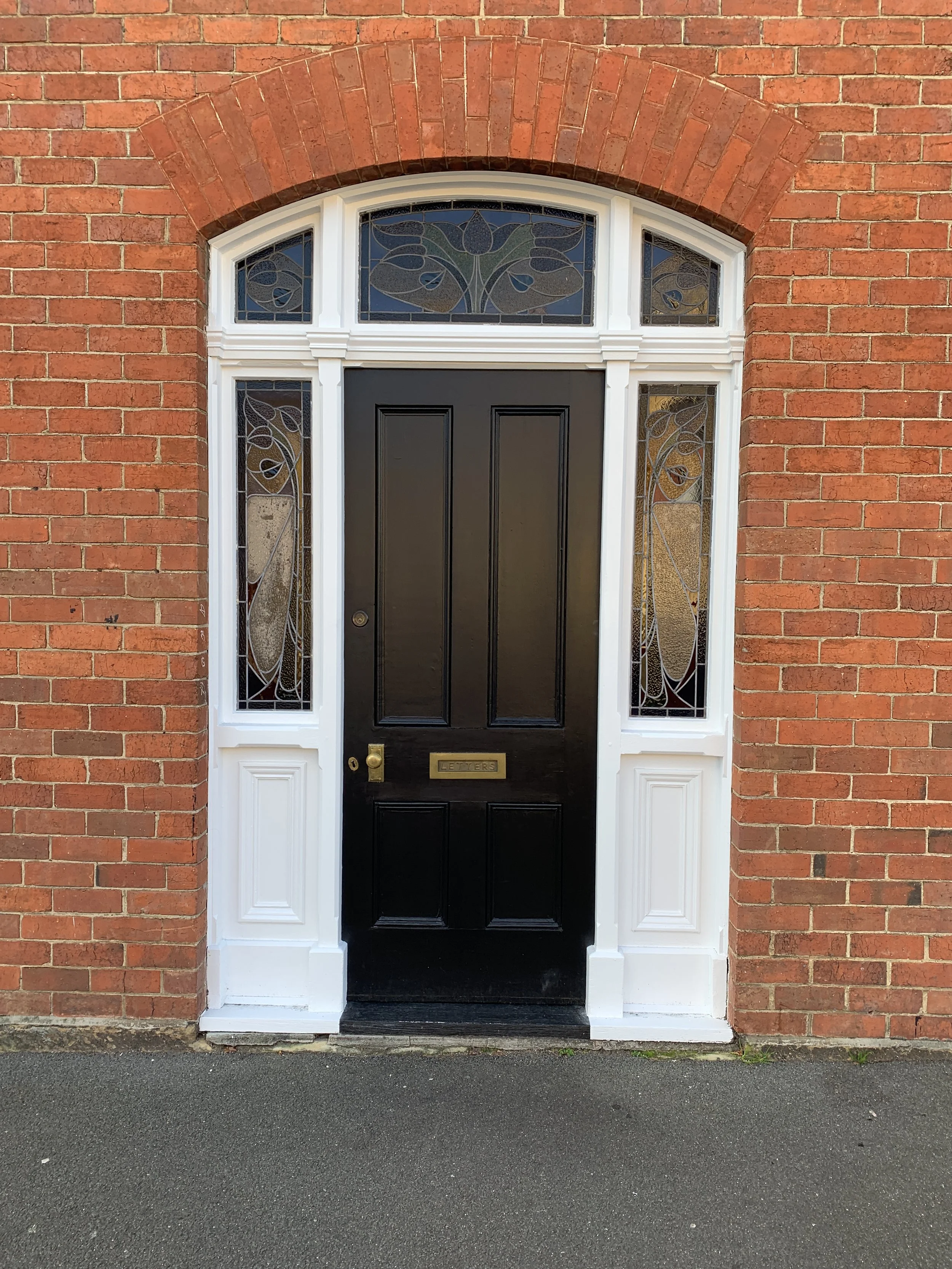
Know your practice
About Wild Calm
Wild Calm Therapies is a unique private practice based in Hobart and online. We provide specialised individual therapy for adults. Our client base is predominantly womxn wanting to take charge of their lives more or who are recovering from traumas, the LGBTIQ+ community and professionals who want to maintain wellness or prevent burnout.
We are an established practice with a trusted reputation locally and nationally. We pride ourselves on minimal marketing and have steadily relied on word of mouth and recommendations, and have a very high return rate of past clients returning when they desire further support.
Therapist's wellbeing and lifestyle is just as important to us as our clients’. In this way, we try our best to practice what we preach. We do this by having scheduling balance, actively checking in with each other, ensuring breaks are taken, and finding a pace that allows us to pause and ask “Is this something that really needs to be done right now or can it wait a minute”. We value quality over quantity in all areas.
At Wild Calm Therapies we highly value who the therapist is as a person and value lived experiences in relation to our typical client groups (womxn, professionals, family and/or sexual violence survivors, Queer folks, and burnout recovery folks). It is important to us to uphold and offer diversity.
Wild Calm Therapies leads with heart and connection first. We model being real. This means we’re ok owning being imperfect. We practice balancing normalising this transparently while holding a grounding, containing position of expertise and experience in our specialty areas. We are conscious of the presence of power and work to create shared power in relationships, including from the inside with the team.
Our Approach
What Makes Us Different.
While any investment in self can be valuable, we’re not a quick-fix, single-session space — and we don’t believe healing is linear or one-size-fits-all. Whether you're here for therapy or supervision, this is a space for deep, sustainable, whole-person work. We do our best work, and people get their best outcomes, when we engage in relational, reliable, longer term work together, that’s structurally supported with consistency.
Here’s what guides us:
Trauma-Embedded Practice:
We work from an understanding that trauma is now widespread — and often unseen. Our model assumes lived experience, not as pathology, but as context and strength.Organic, Client-Led Work:
We follow you — wherever you need to go. Sessions unfold in real time, guided by what feels most alive, relevant, and safe in the moment. We hold and guide you with our container, modalities and with our goal plan in mind, but in sessions we are attuned and responsive within those bounds.Integrated Modalities, Whole-Self Focus:
We bring together somatic, relational, narrative, and neuro-informed (and more) frameworks. Mind, body, story, culture, identity — all of you is welcome here.Three-Stage Trauma Model:
Underpinning all work, we move gently and intentionally through:Safety & Stabilisation
Processing & Integration
Reconnection & Growth
Relational Repair & Corrective Experience - We Are The Tools:
Our work is paced, boundaried, and attuned — creating the kind of safety that allows for real healing. Not just insight, but transformation.Collaborative, Not Hierarchical - The Therapeutic Alliance:
We see you as the expert in your own experience. We bring our skills, but the work is deeply mutual, respectful, and human-to-human.Longer-Term Support:
While we have counsellors, we’re not an EAP-style, one-off service. We specialise in medium to longer-term work (securing appointments in 6, 12, 18 months+ blocks), and we hold secure timeslots to support continuity and depth.
Hi, I’m Jen Wiedman.
For the past 20 years, I’ve been exploring what it takes to keep choosing myself and turn up authentically—especially when it feels like a sense of belonging or relational connection is at risk. And for the last 6 years as a Mental Health Social Worker and Supervisor in private practice, I’ve been bringing this same curiosity, compassion and empowering practice to every worker that sits in front of me who tells me of the same issues: burnout with the systems, lack of safe boundaries, being on autopilot, a sense of just going through the motions, choosing what feels known over what feels true, and complete and utter exhaustion.
I’m deeply passionate about reclaiming our power as workers, yes even within broken systems. It is a radical act of anti-oppressive practice to take charge of our own selves, the way we interact with clients and colleagues, and take care of ourselves. It is advocacy and activism. It starts with us. If we can do it for ourselves, we can also model this for our clients and colleagues too. Through my Work Wisely program, I offer a model of practice and leadership that is boundaried, vulnerable, and embodied—this, is what it is to show up authentically.
I’m beyond passionate about family violence recovery, Queer folks, worker wellbeing and sector disruption. I love working individually and collectively with victim-survivors, lived-experience-workers and leaders, and doing my part to transform minds, practices, lives and systems to orient to us first. But it starts with us.
Mind, body, spirit connections
Talk therapy
Talking therapy is designated for individuals to process and explore their thoughts. Commonly this incorporates support to reflect, examine, and think critically about scenarios or concerns. This capacity is influenced by numerous factors on any given day: the amount and quality of sleep we’ve had, the accumulations of stressors that day to get to therapy, and so on. A therapist will help you separate and pace the session, not feeling rushed or pressured.
Using an attachment-focused approach, meaning creating a safe, stable and secure relationship together, supports deeper self-exploration and more sustainable and positive outcomes in therapy.
Sensory safety
Our space has been intentionally and thoughtfully designed to cater to all senses, taking into consideration your whole experience as a client. Here, every moment, every input is intended to help soothe the entire brain and nervous system.
Specifically designed to elicit an atmosphere of comfort and sanctuary, the space incorporates aromatherapy, calming colours and warm textures to explore or gaze upon. The room is light filled and you can enjoy looking outside. Lights off and blinds can be drawn if you are light sensitive.
Get started
Relational & Community
Research tells us that the most significant predictor of a positive outcome for therapy is the relationship someone has with their therapist. This element has been shown to be even more important than what interventions, strategies or techniques are used in counselling. This factor makes it so important for people to see their therapist as another human, rather than ‘experts’ or people who have it all together. We too have insecurities and flaws, and experience fear and sadness and struggle with our own vulnerabilities. It is this collective human experience that helps us to connect with each other in meaningful, shared ways and enhances the ability to grow and thrive.
“Without community, there is no liberation…” Audrey Lorde
Creative & Somatic experiences
Alongside talk therapy, non-verbal ways of engaging, relating and expressing are offered, such as creative and expressive therapies, and body-based and sensory approaches. Somatic experiences can include breath work, gentle movement, pausing or slowing down to observe what’s happening in your body, or using humming, big sighs or rhythms. These interventions effectively regulate the emotional parts of the brain (the limbic system and the brain stem), the areas of the brain that are often in distress when people attend counselling.
Using this approach allows individuals with differing sensory needs, verbal capacity, or who have experienced significant trauma, to have access to a variety of modalities for self-expression.
Walking sessions are also available as this can be less formal, less confronting as we walk side by side, keep the body in gentle movement, and inspired by natures’ surroundings and lessons.

Walking the talk
We try to practice what we ‘preach’ and take our self-care, wellbeing and internal balance seriously. From time to time, we will take short breaks with one or two longer breaks throughout the year. Typically, we may be unavailable for these periods in order to assist with our own mental wellbeing and to ensure we return in our fullest capacity to support you. However we may also transfer your sessions to Telehealth during longer working away periods.



